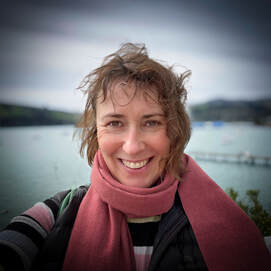Independent Research Consultant
Marita Broadstock, BSc(Hons) MSc

Trained in health psychology, Marita Broadstock conducted programme evaluation and research with an emphasis on cancer prevention and tobacco control for the Cancer Council of Victoria, Australia (1989-1995). Her MSc thesis at the University of Melbourne (1st Class) investigated the role of information and counselling in how cancer patients coped with a new diagnosis.
In the UK, Marita conducted a 3-year study at the University of Cambridge to investigate the psychological consequences of genetic testing for hereditary breast-ovarian cancer. She continued to research and publish in the area of patient decision-making.
In New Zealand between 1999 and 2007, Marita produced systematic reviews and health technology assessments for university-based agencies including New Zealand Health Technology Assessment (Christchurch School of Medicine, University of Otago) and Health Services Assessment Collaboration (University of Canterbury). From 2008-2012 she was Senior Researcher at the New Zealand Guidelines Group.
Marita established INSiGHT Research Ltd in April 2012. She is contracted by the NZ Ministries of Health and Education to deliver the "living guideline process" which updates the New Zealand Autism Spectrum Disorder Guideline annually. She convenes the expert advisory "Living Guideline Group", produces systematic reviews that inform the LGG's updating of recommendations, and manages the prioritisation and consultation processes. Since the inception of the living guideline process, Marita has authored 14 Supplementary Papers on autism topics and has just revised the 3rd edition of the Autism Guideline, now known as 'Aotearoa New Zealand Autism Guideline: He Waka Huia Takiwātanga Rau', available here.
Click here for indicative publications.
In the UK, Marita conducted a 3-year study at the University of Cambridge to investigate the psychological consequences of genetic testing for hereditary breast-ovarian cancer. She continued to research and publish in the area of patient decision-making.
In New Zealand between 1999 and 2007, Marita produced systematic reviews and health technology assessments for university-based agencies including New Zealand Health Technology Assessment (Christchurch School of Medicine, University of Otago) and Health Services Assessment Collaboration (University of Canterbury). From 2008-2012 she was Senior Researcher at the New Zealand Guidelines Group.
Marita established INSiGHT Research Ltd in April 2012. She is contracted by the NZ Ministries of Health and Education to deliver the "living guideline process" which updates the New Zealand Autism Spectrum Disorder Guideline annually. She convenes the expert advisory "Living Guideline Group", produces systematic reviews that inform the LGG's updating of recommendations, and manages the prioritisation and consultation processes. Since the inception of the living guideline process, Marita has authored 14 Supplementary Papers on autism topics and has just revised the 3rd edition of the Autism Guideline, now known as 'Aotearoa New Zealand Autism Guideline: He Waka Huia Takiwātanga Rau', available here.
Click here for indicative publications.
© 2023 INSiGHT Research Ltd. All rights Reserved.
